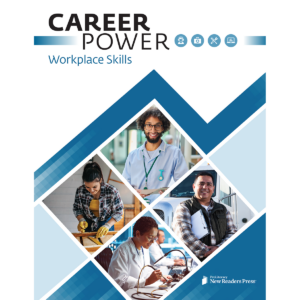Within the US workforce, there is a huge need for more educated and skilled employees with more than a high school diploma but less than a four-year degree. In fact, 70% of employers report difficulty filling open roles with qualified candidates.
As a result, over the past 20 years, the federal government has aimed to propel workforce solutions within the adult education field. Since 2014, adult education programs have received federal funding from the Workforce Innovation and Opportunity Act (WIOA) to help prepare under-skilled adults to enter or advance in the workforce and earn family-sustaining wages. On average, workers without a high school diploma earn three-times less than those at the highest education levels. By helping adults reach the finish line of earning their high school equivalency (HSE) credentials, adult educators can help give them a chance at economic mobility.
But it’s not always as easy as leading someone to an HSE credential. Some adults are overwhelmed by the idea of trying to both increase their academic skills and separately taking a workplace skills course. This is where Integrated Education and Training (IET) has emerged as a leading tactic over the past few years.
IET has always been part of WIOA, but its approach of teaching academic skills while simultaneously providing workforce, occupational, and industry training has taken hold. An IET career pathways model can keep students motivated by cutting down the time it takes for them to become career ready.
IET sounds like a win-win. But many adults are not yet at the level to enter a certified IET program, which is typically geared toward those at NRS level 5 (ABE reading level 9-10) and above. What are their options for learners whowant to advance in the workplace but also struggle with the ability to attend both academic and workplace skills classes?
Career Power
 ProLiteracy New Readers Press knows that adult learners at every level are looking for workforce training and career pathways and that adults who complete these programs are more prepared to ultimately receive a certification or licensure in a field.
ProLiteracy New Readers Press knows that adult learners at every level are looking for workforce training and career pathways and that adults who complete these programs are more prepared to ultimately receive a certification or licensure in a field.
In our research, we confirmed that workforce preparation skills are not career- or industry-specific. Adults need foundational skills to succeed in all career pathways, along with the specific skills required for the types of jobs they pursue. These include:
- critical thinking,
- communication,
- processing and analyzing information,
- self-awareness,
- navigating systems,
- adaptability and willingness to learn,
- respecting differences and diversity, and
- interpersonal skills.
We developed our new Career Power series for learners reading at NRS level 3 (grade levels 4–5). It uses the same approach of presenting academic learning in the context of workforce skills to help learners bridge to career readiness courses. To be successful, we evaluated the skills that would serve as a foundation for more targeted career pathways courses.
We integrated these skills into Career Power along with the academic skills that will improve their reading, writing, and math and move them to the next level. The four-book series consists of a Workplace Skills book that covers soft skills, as well as three academic skills books: Reading Skills for the Workplace, Writing Skills for the Workplace, and Math Skills for the Workplace. The series also includes a teacher’s guide for the workplace skills and for the academic skills books.
While not specific to any individual career path, the books set lower-level learners up to start thinking about what industries or fields they would be interested in pursuing as they advance to higher levels, while also giving them practical tools to be successful employees.
Curricula like Career Power that contextualize content and act as an onramp to the next step in career pathways learning are shown to increase the likelihood that low-level adults will persist to eventually earn career credentials or certificates—which ultimately is the goal of WIOA.
Students who complete Career Power are equipped to continue learning with higher level curriculum materials like our WorkWise series, written at NRS level 4 (reading level 6–8), as a precursor to entering a certified IET program.
Learn more about our new Career Power student books and teacher’s guides
Professional Development Opportunity
We are hosting a course for educators who want to build a career pathways learning model for low-level learners at their programs. This two-part course costs $95 and participants will receive four Continuing Education Units and $185 in ProLiteracy New Readers Press materials, including Career Power Workplace Skills.